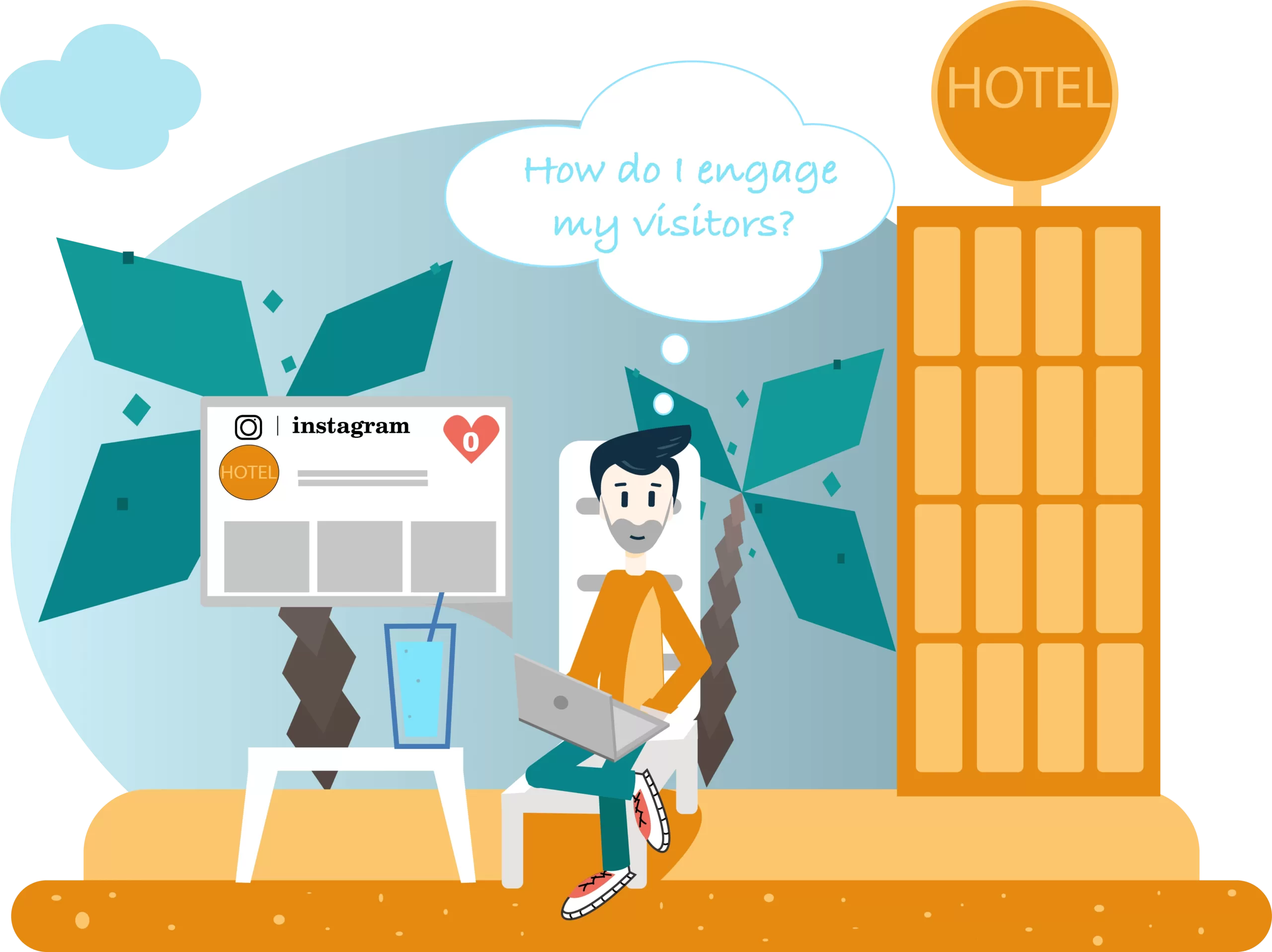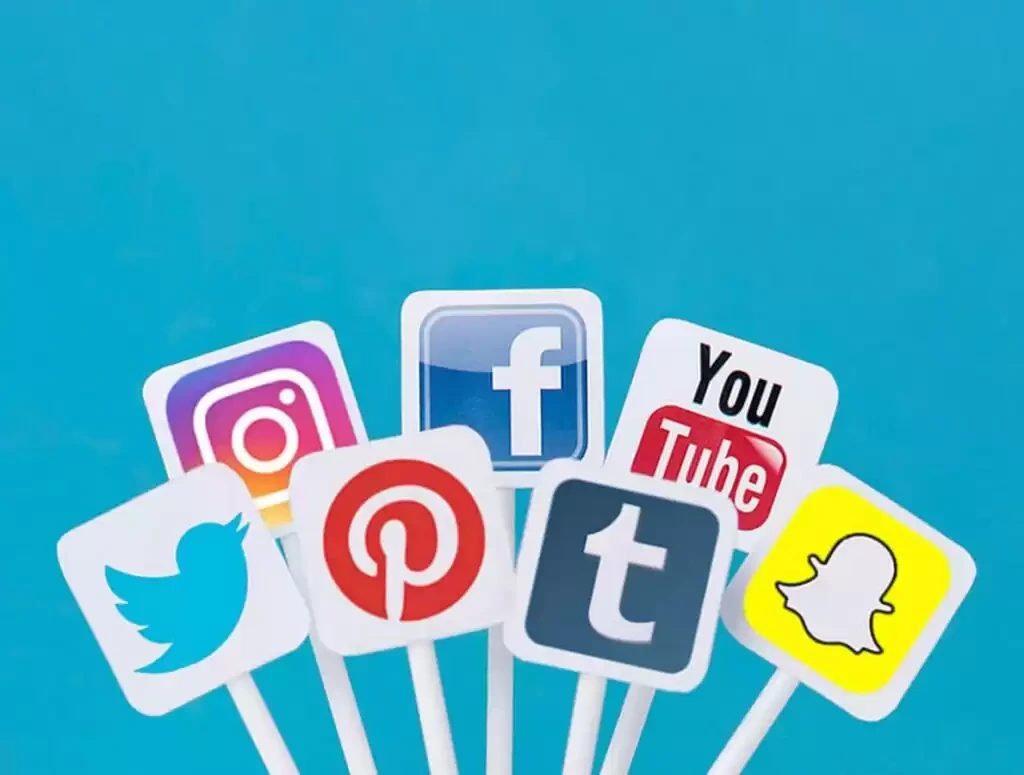
Social media has become essential for hotels looking to connect with customers and market their brands. With millions of people using platforms like Facebook, Instagram, and Twitter daily, hotels that can effectively leverage social media can reach new audiences and increase their bookings. In this blog post, we’ll outline the top strategies for effective social media marketing for hotels, starting with knowing your audience and ending with choosing the right platforms.
The first step in creating an effective social media marketing strategy for your hotel is to know your audience. It means understanding their demographics, interests, and preferences and tailoring your social media content to meet their needs.
There are a few ways to gather this information:
· Use analytics tools to gather data on your followers. Platforms like Facebook and Instagram provide detailed analytics that can help you understand who is following you and what content they engage with the most.
· Conduct surveys or focus groups to gather feedback directly from your guests. It can help you understand what they like and dislike about your hotel and what they want in a social media account.
· Monitor your competitors’ social media accounts to see what kind of content resonates with their followers. While you don’t want to copy your competitors, you can use this information to inform your strategy.
Once you understand your audience well, you can start creating content that will resonate with them. It might include highlighting amenities that are important to them, sharing local recommendations, or showcasing the unique features of your property.
While it’s tempting to try to be active on every social media platform, it’s important to focus your efforts on the ones that will be most effective for your hotel. Here are some considerations when choosing which platforms to use:
· Who is your target audience? Different social media platforms are popular among different age groups and demographics, so choosing the ones your target audience is most likely to be using is important.
· What are your goals? Different social media platforms have different strengths and can be used for different purposes. For example, Instagram is great for showcasing visually appealing content, while Twitter is better for quick updates and customer service.
· How much time and resources do you have? It’s better to do a great job on a few platforms than to spread yourself too thin. Consider how much time and effort you can devote to social media, and choose platforms you can manage effectively.
Some of the most popular social media platforms for hotels include:

· Facebook: With over 2 billion monthly active users, Facebook is a great platform for reaching a wide audience and engaging with customers. Hotels can use Facebook to share updates, promote their amenities, and offer customer service.
· Instagram: As a visual platform, Instagram is ideal for showcasing your hotel’s best features and amenities. Hotels can use Instagram to share high-quality photos and videos, showcase their location and surroundings, and highlight guest experiences.
· Twitter: Twitter is a great platform for quick updates and customer service. Hotels can use Twitter to share real-time updates on events and promotions, respond to customer inquiries, and monitor mentions and hashtags related to their brand.
· TikTok: While still a relatively new platform, TikTok has quickly become one of the most popular social media apps among younger audiences. Hotels can use TikTok to share fun, engaging videos that showcase their personality and appeal to a younger demographic.

Once you understand your audience well and have chosen the right platforms to use, it’s time to start creating content.
Here are some tips for creating engaging social media content for hotels:
· Use high-quality visuals: Social media is a visual medium, so it’s important to use high-quality photos and videos that showcase your hotel in the best possible light. Consider investing in professional photography or videography to create content that stands out.
· Show off your amenities: Social media is a great way to highlight the amenities and features that make your hotel special. Consider showcasing your pool, spa, restaurant, or other features that are unique to your property.
· Share local recommendations: Many travellers are looking for recommendations on things to do and see in the area. Use social media to share local restaurant recommendations, attractions, and activities.
· Highlight guest experiences: Social proof is a powerful marketing tool, so consider highlighting guest experiences on your social media accounts. Share photos and stories from happy guests, and encourage guests to share their experiences using your hotel’s hashtags.
· Offer exclusive promotions: Social media is a great way to offer exclusive promotions to your followers. Consider offering discounts or other perks to guests who follow your social media accounts or book directly through your website.
· Respond to customer inquiries: Social media is also a great way to offer customer service and respond to inquiries in real time. Monitor your social media accounts regularly and respond promptly to any questions or concerns.
By following these strategies, hotels can create engaging social media content that resonates with their target audience and helps to drive bookings. As with any marketing strategy, it’s important to measure your results and adjust your social media marketing for hotels strategy to ensure that you’re getting the best possible return on your investment.
With these tips, your hotel can create a social media marketing strategy to help you reach new audiences and stand out in a crowded market. Social media marketing for hotels can make all the difference in attracting more guests and standing out from the competition.
Influencer marketing is a great way to reach new audiences and promote your hotel on social media. Identify influencers in your industry who have a large following and align with your hotel’s brand values and target audience. Collaborate with them to create engaging social media marketing for hotels’ content that showcases your hotel and its amenities. It can be in the form of sponsored posts or a hosted stay in exchange for content creation. This strategy helps reach new audiences, adds credibility to your brand, and increases your social media presence. You can effectively expand your reach and build trust with potential guests by leveraging influencer marketing as part of your social media marketing for hotels strategy.
Paid advertising is a great social media marketing strategy for hotels to reach your target audience on social media platforms. Most social media platforms, such as Facebook and Instagram, offer highly targeted marketing options to get specific demographics, interests, and behaviours. Use social media marketing for hotels through paid advertising to promote your hotel’s amenities, exclusive promotions, and events to potential guests. This strategy can increase brand awareness and drive more traffic to your website. By leveraging social media marketing for hotels with paid advertising on social media platforms, hotels can effectively reach their target audience and drive more bookings.
Monitoring and responding to reviews on social media is a crucial aspect of social media marketing for hotels and an essential part of reputation management. Encourage guests to leave reviews on your social media pages and promptly respond to positive and negative feedback. Your hotel values guest feedback and are dedicated to providing the best possible experience through effective social media marketing strategies. It also helps to address any negative feedback before it escalates into a more significant issue.
Social media contests are a great way to increase engagement on your hotel’s social media accounts. Consider hosting social media contests encouraging guests to share photos of their stay at your hotel using a specific hashtag. It helps increase engagement and provides user-generated content that can be used to promote your hotel on social media. Be sure to offer enticing prizes to your target audience, such as a free night’s stay or a spa treatment. By incorporating social media contests into your social media marketing for hotels strategy, you can increase engagement and promote your hotel in a fun and interactive way.
Lastly, analysing and adjusting your social media marketing strategy based on your results is important. Use social media analytics tools to measure your reach, engagement, and conversions. Use this data to decide what content resonates with your audience and what needs to be adjusted. Don’t be afraid to try new tactics and strategies to see what works best for your hotel.
By following these strategies, hotels can create an effective social media marketing plan that will help them increase brand awareness, drive more traffic to their website, and ultimately increase bookings. By creating engaging content, leveraging influencers and paid to advertise, monitoring and responding to reviews, hosting contests, and analysing and adjusting your strategy, your hotel can stand out in a crowded market and attract more guests.
Social media marketing is essential to any successful marketing strategy for hotels. Social media platforms provide a unique opportunity to reach a wide audience and engage with potential guests in real time.
By following the top strategies outlined in this blog, hotels can create engaging content, leverage influencers and paid advertising, monitor and respond to reviews, host contests, and analyse and adjust their social media marketing strategy.
Creating high-quality visual content, showcasing hotel amenities, offering exclusive promotions, highlighting guest experiences, leveraging influencer marketing, using paid advertising, monitoring and responding to reviews, hosting social media contests, and analysing and adjusting your strategy are all key components of a successful social media marketing plan for hotels.
By implementing these strategies, hotels can effectively reach their target audience, increase brand awareness, drive more traffic to their website, and ultimately increase bookings. In a crowded market, social media marketing for hotels can make all the difference in attracting more guests and standing out from the competition.
Social media marketing is valuable for hotels looking to grow their business and connect with potential guests. With the right strategy and approach, hotels can maximise the potential of social media to achieve their marketing goals and succeed in the competitive hospitality industry.